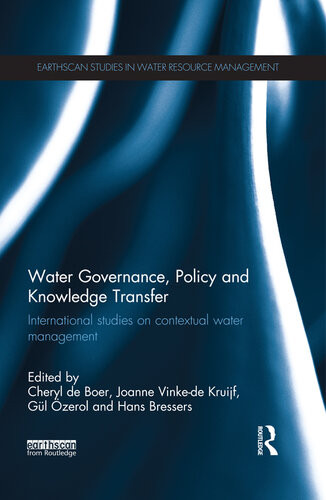

Most ebook files are in PDF format, so you can easily read them using various software such as Foxit Reader or directly on the Google Chrome browser.
Some ebook files are released by publishers in other formats such as .awz, .mobi, .epub, .fb2, etc. You may need to install specific software to read these formats on mobile/PC, such as Calibre.
Please read the tutorial at this link: https://ebookbell.com/faq
We offer FREE conversion to the popular formats you request; however, this may take some time. Therefore, right after payment, please email us, and we will try to provide the service as quickly as possible.
For some exceptional file formats or broken links (if any), please refrain from opening any disputes. Instead, email us first, and we will try to assist within a maximum of 6 hours.
EbookBell Team

4.7
86 reviewsIn an increasingly global community of researchers and practitioners, new technologies and communication means have made the transfer of policies from one country or region to another progressively more prevalent. There has been a lot of attention in the field of public administration paid to policy transfer and institutional transplantation. This book aims to create a better understanding of such transfers in the water management sector. These include the adoption of modern water management concepts, such as integrated water resources management and forms of water governance, which are strongly promoted and sometimes also imposed by various international organizations. Transfers also occur within the scope of development aid or for the purpose of creating business opportunities. In addition, many research organisations, consultancies and governmental agencies are involved in cross-border work.
The purpose of this book is therefore to present practical examples of the transfer of modern water management from one locality to another and to critically discuss the transferability of policy and governance concepts by analysing the contextual needs and factors. Case studies are included from North America, Europe, the Middle East and Asia. It is argued that in many cases context matters in water management and that there is no panacea or universal concept that can be applied to all countries or regions with different political, economic, cultural and technological contexts. Yet it is also shown that some countries are facing pressing and similar water management issues that cut across national borders, and hence the transfer of knowledge may be beneficial.